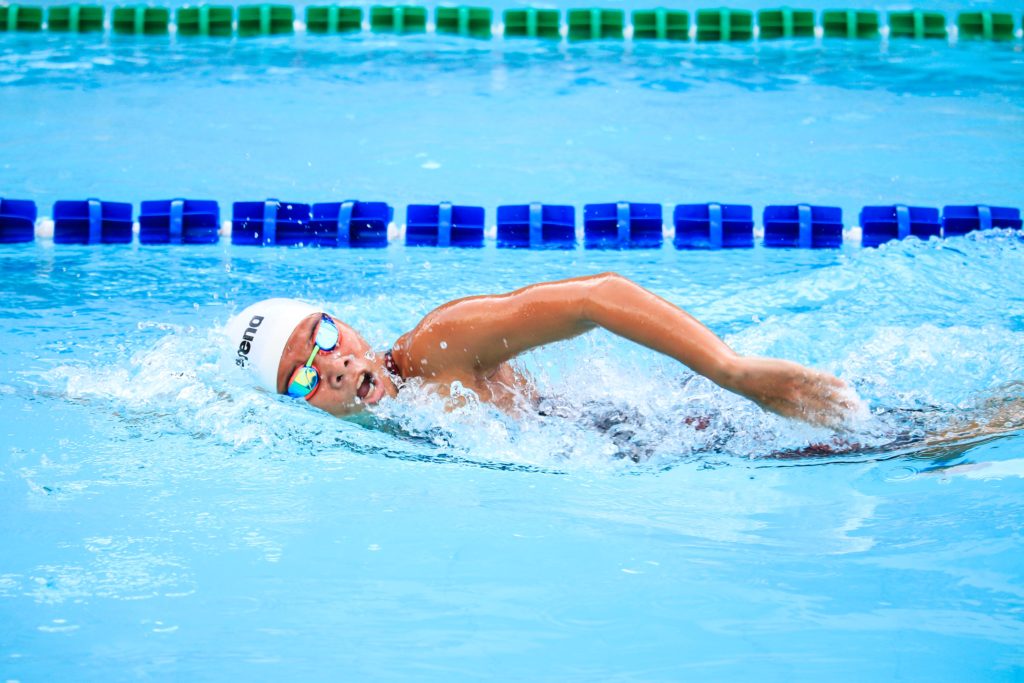Swimming skills are essential for water safety, especially with nearly 4,000 fatal unintentional drownings happening in the country every year.
Many animals are born with the ability to swim, humans must learn and practice before being able to swim with ease. Some people do not know how to swim, and the lack of swimming skills makes them prone to drowning, which makes them fear going into the water more.
Families should prioritize swimming lessons to ensure their child’s safety around water. But talking about the best age to start, you should learn more about swimming and its benefits to children and adults.
Importance of Learning How to Swim
It’s common knowledge that swimming can strengthen the muscles, heart and lungs. What you may not know is that swimming can also offer cognitive benefits.
Swimming has been shown to improve brain development in young children and help prevent cognitive decline in older adults. Children who learn to swim while young reach cognitive developmental milestones faster than those who do not know to swim.
Attending swimming lessons also provides children with a sense of accomplishment and mastery, which can lead to improved self-esteem.
Swimming is a skill that people can enjoy for a lifetime. So, engaging your kids in sports such as swimming is an effective way to promote a healthy lifestyle. Similarly, there are several benefits teens can get from sports like swimming.
Best Age to Start Swim Lessons
Research shows that children should learn basic swimming skills between two and four years old. Swimming is an excellent activity for all kids and can help them stay active and healthy. Enrolling them in swimming classes will encourage your kids to stay active while having fun.
Swimming for Toddlers

You can also let your toddlers take swim lessons at YMCA. The nonprofit offers swim lessons for young kids from six to 36 months.
The program focuses on water orientation. It also encourages trust between babies and parents in the water. They learn the fundamentals of swimming, including floating, breath control, blowing bubbles, and kicking. This program is an excellent way to introduce your child to the water and help them become more comfortable with swimming.
Classes are offered for children ages six to 18 months old, and parent-child classes are provided for children ages 18 months to three years old.
It is crucial to enroll your child in swimming classes at the best age to start so they can learn the proper techniques and stay safe in the water.
Gaining Swimming Skills as an Adult

Aside from young children, some adults also need to take swimming lessons. Some of them never learned how to swim due to their fear of water. This fear may have developed due to a traumatic experience or from hearing stories about other people’s experiences.
The best age to start swimming lessons depends on the individual. For those who are afraid of water, it is recommended that they start learning early. This way, they can overcome their fear and be more comfortable in the water.
Swimming is excellent for all ages. So, it is never too late to learn how to swim. So, don’t give up on your dreams of taking swimming lessons. There are several benefits of learning how to swim.
Health
Health is an essential benefit of taking swim lessons. It is a full-body workout that can help to tone muscles, improve cardiovascular fitness and reduce body fat.
Swimming is also a low-impact exercise, which places less stress on bones and joints than other activities such as running or playing tennis. All these health benefits make swimming an ideal activity for people of all ages.
While many people believe that there is an ideal age to start swimming lessons, the truth is that it is never too late to learn. Swimming is a skill people can learn at any age, and starting lessons later in life can still offer many health benefits. Research has shown that adults who take up swimming can significantly improve their health and fitness levels.
If you are thinking about starting swimming lessons, the best thing to do is to speak to your doctor or a qualified swim instructor. They will be able to assess your individual needs and recommend the best course of action for you.
Water Safety
Another apparent reason to take swim lessons is for personal water safety. According to the American Red Cross, drowning is second only to motor vehicle crashes when it comes to accidental death among children between one and 14 years old.
Around ten people die due to unintentional drowning every day. It is also the leading cause of death in children with autism. Autistic children are more than a hundred times more likely to drown than their peers.
While there is no guarantee taking swim lessons will prevent your child from drowning, it is a good way to start teaching them about water safety.
Swim lessons can help your child become more comfortable and confident in the water. They can also learn about different safety skills, such as what to do if they find themselves in a situation where they are struggling to stay afloat. So, you should ensure your kids’ fitness program includes learning water skills.
Recreation
If you learn to swim while you’re young, you can develop a lifelong love of the water. Spending time in the water is essential.
You can take a swim in a pool or the ocean, depending on your skill level. But you must ensure you are in a safe environment while enjoying the water. Swimming on a summer day can be relaxing and helps you stay fit.
The water is also an ideal place to socialize with friends. You can go surfing, jet skiing, or water skiing. But these activities are only fun if you know how to swim. That’s why learning to swim is so important.
It’s a fun process that can provide you with a lifetime of enjoyment. Many people find swimming to be an excellent pastime. It’s an effective way to cool down and still enjoy being outside.
Things to Learn About Swimming as an Adult
Adults who want to learn how to swim must be willing to commit themselves to a set schedule of lessons. Depending on your level of comfort in the water, it may take as little as 20 hours to learn the basics of swimming. However, everyone has different skill levels, and some may require more time to learn. Here are some tips to consider if you want to learn how to swim safely as an adult:
Take Swimming Lessons
You should consider taking swimming lessons. This is especially important if you have never learned how to swim before. Many community pools offer swimming programs for adults.
These are typically offered in the form of group classes or private lessons. Group classes are a fun way to meet other adults interested in learning how to swim. The class sizes are also manageable to ensure everyone gets the attention they need.
Private lessons are an excellent option for adults who want more personalized instruction. This is especially beneficial if you have specific goals like learning to swim laps or stroke refinement. Private lessons offer one-on-one instruction, which can be helpful if you feel more comfortable learning in a smaller setting.
Another option is taking semi-private lessons. These are similar to private lessons, but there are usually two or three students per class. This can be a good option if you want the attention of a private lesson but also enjoy learning with others.
Teaching Yourself
If you want to teach yourself, you should start in the shallow part of the pool. This is a good way to overcome any fear you have of the water. You should also spend more time in the water.
Spending time in the water will help you get used to the feeling of being submerged and help you become more comfortable with the water.
You can also try using a swimming pool noodle or kickboard. This will help you get used to floating and give you a chance to practice kicking. Kicking is an integral part of swimming and is one of the best ways to move through the water.
Don’t Forget to Breathe
One of the most important things to remember when learning to swim is breathing. Many people hold their breath in the water, but this can be dangerous. When you hold your breath, it can cause you to panic and can lead to hyperventilation.
Instead of holding your breath, you should exhale through your nose and mouth as you swim. This will help you stay calm and relaxed in the water. You should also take a breath every few strokes. This will help ensure that you are getting enough oxygen and help prevent you from panicking.
No matter what your age, it’s never too late to learn how to swim. Swimming is a fun and rewarding activity for people of all ages. It’s an excellent way to stay fit and cool down during summer.
Swimming is an essential life skill everyone should know how to do. If you’re interested in learning how to swim, consider taking lessons from a qualified instructor. This is the best way to ensure that you learn correctly and safely.

